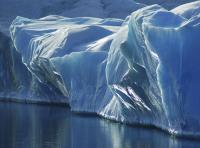The bad news dropped very hard on us today at Desmog: The North Pole could be free of sea ice for the first time in recorded history this summer, according to National Geographic News.
And that would have the effect of speeding global warming, as highly reflective ice gives way to heat absorbing water in the high Arctic.
As NatGeo reports, scientists were shocked last year when the high Arctic lost 65 per cent of its ice cover in one year, an unprecedented loss over a time scale they previously thought was impossible. And, perversely, that generates more of the Deniers’ favorite commodity: doubt.
We can all now doubt that things were as bad as we might have feared. As it turns out: they’re worse.
Subscribe to our newsletter
Stay up to date with DeSmog news and alerts







